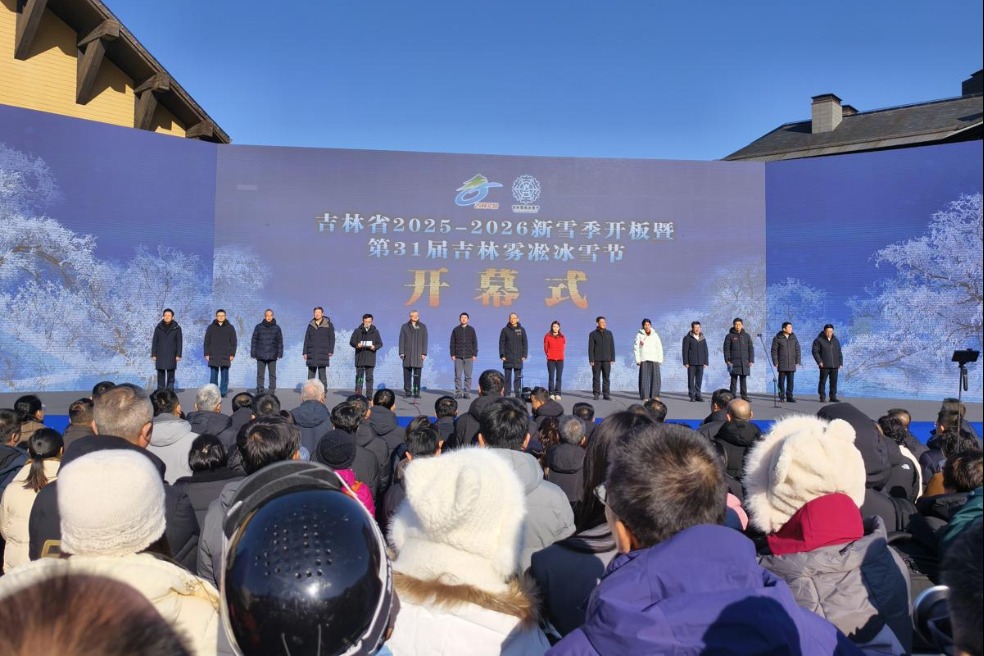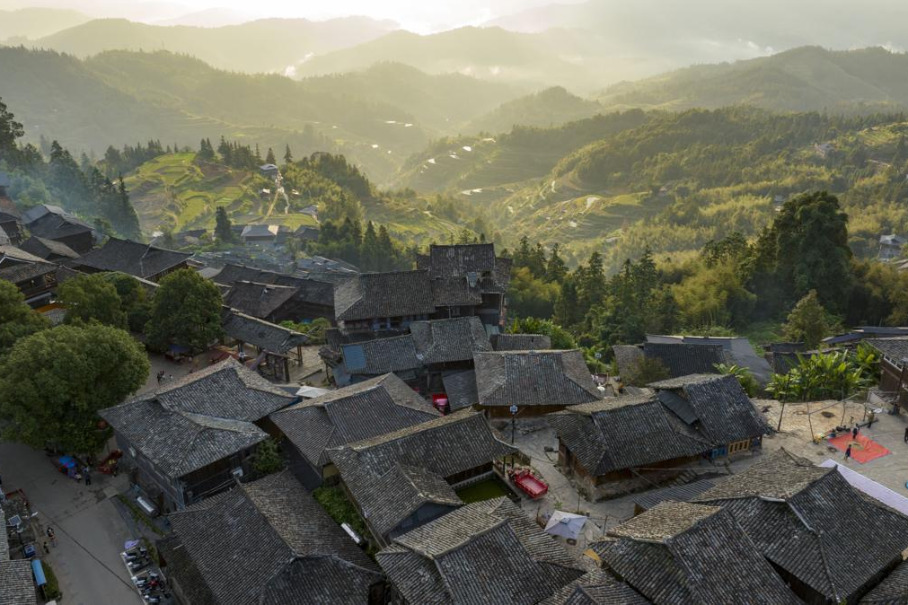Explainer: How will China peak coal, oil use in its climate push

BEIJING -- As China progresses towards its 2030 carbon-peaking target, the upcoming five years -- its next national planning cycle -- will be crucial. With coal and oil still at the heart of the energy system, they will be central to the country's climate efforts.
As "work toward reaching peak consumption of coal and petroleum" is part of the Communist Party of China Central Committee's recommendations for formulating the 15th Five-Year Plan (2026-30) unveiled last month, how will the world's largest energy consumer achieve this goal while ensuring energy security?
China's shift toward clean energy has gained momentum since 2020, when the country pledged to peak carbon emissions by 2030 and achieve carbon neutrality by 2060. The share of non-fossil fuels in the country's total energy consumption has risen in line with national targets, along with the establishment of the world's largest and fastest-growing renewable energy system.
In the next five years, China plans to accelerate building a new-type energy system, one in which non-fossil sources replace fossil fuels in a secure, reliable and orderly manner.
Following the principle of maintaining a stable energy supply, coal consumption will be gradually reduced, while the remaining use will be made cleaner and more efficient. At the same time, China will fast-track the development of major clean energy bases, including wind and solar power in the northwest, hydropower in the southwest, offshore wind farms, and coastal nuclear power projects. New energy sources such as biogas, sustainable aviation fuel and geothermal energy will be advanced based on local conditions.
As coal and oil consumption reach their respective peaks, related industries may face challenges. In response, China plans to optimize industrial layouts and structures, expanding the share of advanced capacity while gradually phasing out inefficient coal mining and oil refining.
Official projections suggest that by 2030, fossil fuels will account for less than 75 percent of total energy consumption.
Coal consumption is expected to peak around 2027, with demand from steel and building materials gradually declining. Overall oil consumption will likely reach its peak around 2026, as the usage of refined oil products for fuel has already peaked and petrochemical feedstock demand will maintain moderate growth.
Achieving carbon peaking is not the end. In September 2025, China unveiled its new Nationally Determined Contributions, setting ambitious goals for 2035, including reducing economy-wide net greenhouse gas emissions by 7 percent to 10 percent from peak levels, increasing the share of non-fossil fuels in total energy consumption to over 30 percent, and expanding the installed capacity of wind and solar power to over six times the 2020 levels.
Experts believe the new commitments mark China's entry into a more comprehensive and systematic phase of low-carbon, resilient development, strengthening the country's responsibility in tackling global climate change and injecting greater certainty and stability into international climate governance.
- Explainer: How will China peak coal, oil use in its climate push
- Live-fire drill in Yellow Sea to run from Tuesday to Friday
- Chinese scientists reveal potential driver of ulcerative colitis
- 3.43m candidates have signed up for 2026 national postgraduate entrance exam
- China aims to cover key industrial emitters in carbon market by 2027
- Hiker returns phone lost on remote trail for three years




































